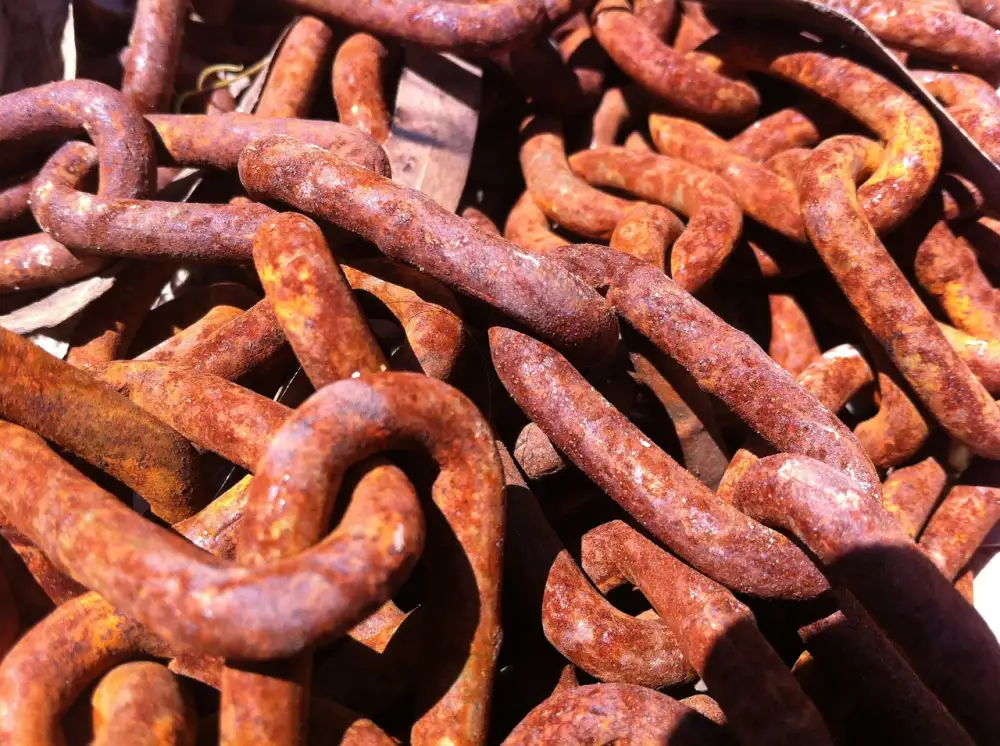Revive Your Rusty Cast Iron Skillet: Easy Steps to Restore its Shine at Home

- Gather the necessary materials for cleaning
- Scrub the skillet with a stiff brush to remove loose rust
- Create a paste using salt and water to scrub away stubborn rust spots
- Rinse the skillet thoroughly with warm water
- Dry the skillet completely to prevent further rusting
- Apply a thin layer of oil to the skillet to season and protect it
- Store the skillet in a dry place to prevent future rusting
- Tips for maintaining a rust-free cast iron skillet
A rusty cast iron skillet can be a kitchen nightmare, but fear not! With a little effort and the right techniques, you can easily restore its shine and bring it back to life. Cleaning a rusty cast iron skillet is not as daunting as it may seem. In this article, we will guide you through the step-by-step process of reviving your beloved skillet so that you can continue to enjoy cooking with it for years to come. So let's get started and say goodbye to that pesky rust!
Gather the necessary materials for cleaning
To clean a rusty cast iron skillet, you will need a few essential materials. First, gather a stiff brush or scrubber to remove loose rust. Look for one that is specifically designed for cleaning cast iron cookware. Next, you'll need salt and water to create a paste for scrubbing away stubborn rust spots. Make sure to use coarse salt as it provides better abrasion. Additionally, have warm water ready for rinsing the skillet thoroughly after cleaning. Finally, prepare a clean cloth or paper towels for drying the skillet completely and a high-quality cooking oil for seasoning and protecting the skillet after cleaning.
Scrub the skillet with a stiff brush to remove loose rust
To begin the process of restoring your rusty cast iron skillet, start by scrubbing it with a stiff brush. This will help to remove any loose rust particles that may be clinging to the surface. Make sure to use a brush with firm bristles that can effectively dislodge the rust without causing damage to the skillet. Gently but firmly scrub all areas of the skillet, paying extra attention to any particularly rusty spots. This initial step will help prepare the skillet for further cleaning and restoration.
Create a paste using salt and water to scrub away stubborn rust spots
To tackle stubborn rust spots on your cast iron skillet, create a simple yet effective paste using salt and water. Start by sprinkling a generous amount of salt onto the affected areas. Then, add a small amount of water to the salt to create a thick paste. Using a stiff brush or sponge, vigorously scrub the rust spots with the paste. The abrasive texture of the salt will help break down and remove the rust. Continue scrubbing until all the rust is gone, adding more paste if needed. This method is gentle enough not to damage your skillet while effectively removing stubborn rust spots.
Rinse the skillet thoroughly with warm water
After scrubbing away the loose rust, it's important to give your cast iron skillet a thorough rinse. This will remove any remaining rust particles and ensure a clean surface for seasoning. Fill your sink or a large basin with warm water and carefully place the skillet inside. Use your hands or a sponge to gently wash the skillet, making sure to remove any residue from the scrubbing process. Rinse the skillet multiple times until the water runs clear and all traces of rust are gone. Be sure to dry the skillet completely before moving on to the next step.
Dry the skillet completely to prevent further rusting
After rinsing the skillet thoroughly with warm water, it is crucial to dry it completely to prevent further rusting. Leaving any moisture on the surface of the skillet can lead to the formation of new rust spots. To dry the skillet, use a clean towel or paper towels and gently pat it dry. Make sure to remove all traces of water from both the inside and outside of the skillet. It is important to be thorough in this step as even small amounts of moisture can cause rust to develop over time. Once completely dry, you can move on to the next step of seasoning and protecting your cast iron skillet.
Apply a thin layer of oil to the skillet to season and protect it
After thoroughly drying the skillet, it's time to season and protect it. Applying a thin layer of oil is essential for maintaining the skillet's non-stick surface and preventing rust. Use a neutral oil like vegetable or canola oil, as they have a high smoke point. Pour a small amount of oil onto a paper towel and rub it all over the skillet, including the handle and exterior. Make sure to coat every inch evenly, but avoid using too much oil as it may become sticky. This seasoning process creates a protective barrier that enhances the skillet's natural non-stick properties and prevents moisture from reaching the iron. With proper seasoning, your cast iron skillet will be ready to serve you delicious meals for years to come.
Store the skillet in a dry place to prevent future rusting
To prevent future rusting, it's important to store your cast iron skillet in a dry place. Moisture is the enemy of cast iron, so make sure the skillet is completely dry before storing it. After washing and drying the skillet, you can place a paper towel or cloth inside to absorb any remaining moisture. Avoid storing it in a humid environment such as under the sink or near a dishwasher. Instead, find a cool and dry spot in your kitchen where the skillet can be stored safely. By taking these precautions, you'll ensure that your cast iron skillet remains rust-free and ready for many delicious meals to come.
Tips for maintaining a rust-free cast iron skillet
To maintain a rust-free cast iron skillet, there are a few tips to keep in mind. Firstly, avoid using soap or harsh detergents when cleaning your skillet as they can strip away the seasoning. Instead, use hot water and a stiff brush to remove any food residue. Secondly, after each use, dry the skillet thoroughly to prevent moisture from causing rust. You can place it on a low heat burner for a few minutes to ensure it is completely dry. Lastly, apply a thin layer of oil after each use to keep the skillet seasoned and protected. This will create a natural barrier against rust formation. By following these simple tips, you can enjoy cooking with your cast iron skillet for years to come!
In conclusion, by following these simple steps, you can revive your rusty cast iron skillet and enjoy cooking with it once again. Cleaning and maintaining your skillet is essential to ensure its longevity and optimal performance. With regular care and attention, your cast iron skillet will continue to provide you with delicious meals for years to come. So go ahead, gather your ingredients, scrub away the rust, season it well, and savor the joy of cooking with a clean and well-maintained cast iron skillet. Happy cooking!
Published: 17. 12. 2023
Category: Home



